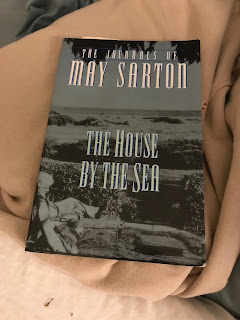I heard someone say recently that poetry was best enjoyed by the young because they had not become jaded yet. I find myself enjoying poetry more as I age because I am able to understand on a deeper level what the poem really means. What I think about cynicism is that it is a choice. You have to choose to meet the world fresh and new every day. I do not say this out of a naive life experience lacking pain. I’ve learned this because of the hard parts of my past. Allowing yourself to be jaded is actually the easy way out. It’s the easy path to not being hurt again, but it’s also the path that misses the most beautiful parts of life. It’s the path that ignores Thoreau’s exhortation when he wrote:
“We must learn to reawaken and keep ourselves awake, not by mechanical aids, but by an infinite expectation of the dawn, which does not forsake us in our soundest sleep. I know of no more encouraging fact than the unquestionable ability of man to elevate his life by a conscious endeavor. It is something to be able to paint a particular picture, or to carve a statue, and so to make a few objects beautiful; but it is far more glorious to carve and paint the very atmosphere and medium through which we look, which morally we can do. To affect the quality of the day, that is the highest of arts. Every man is tasked to make his life, even in its details, worthy of the contemplation of his most elevated and critical hour.... I went to the woods because I wished to live deliberately, to front only the essential facts of life, and see if I could not learn what it had to teach, and not, when I came to die, discover that I had not lived. I did not wish to live what was not life, living is so dear; nor did I wish to practise resignation, unless it was quite necessary. I wanted to live deep and suck out all the marrow of life....”


